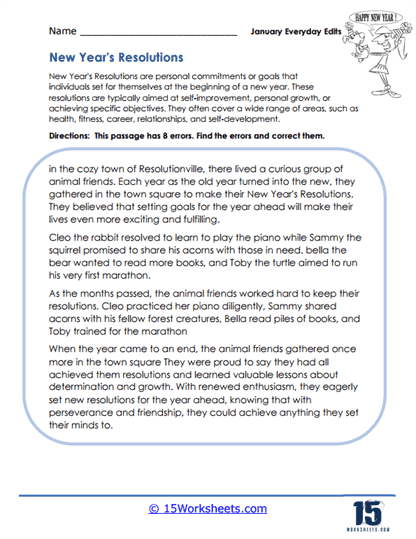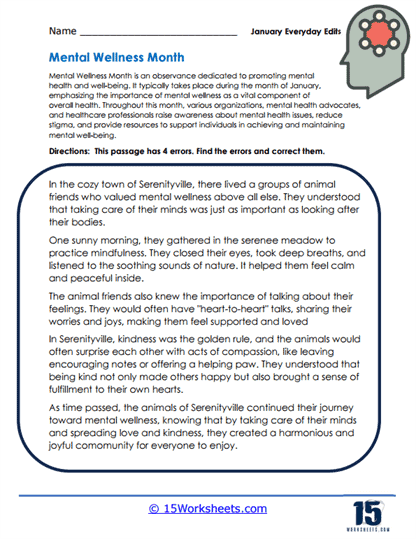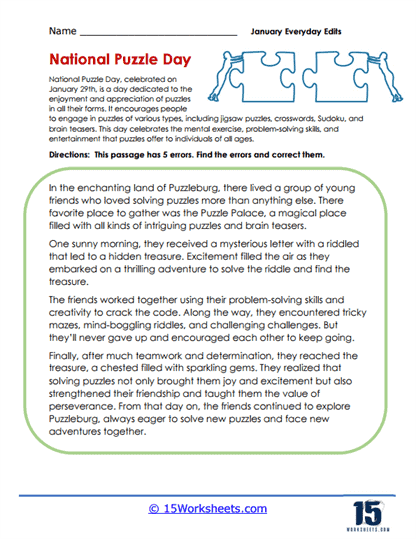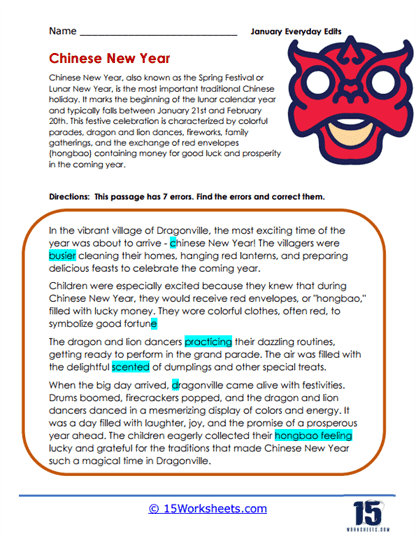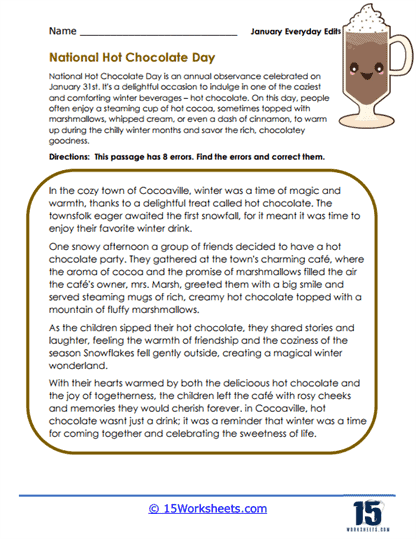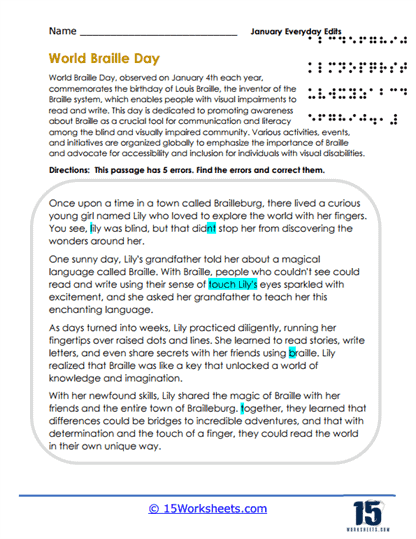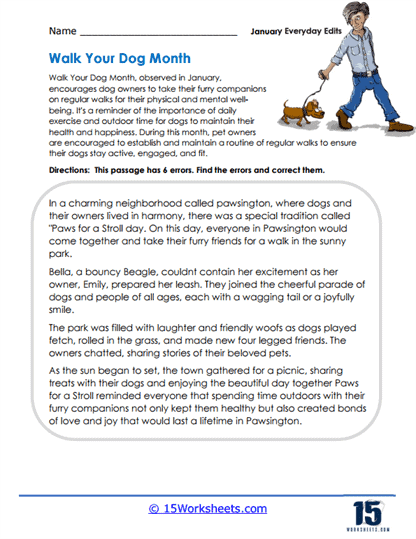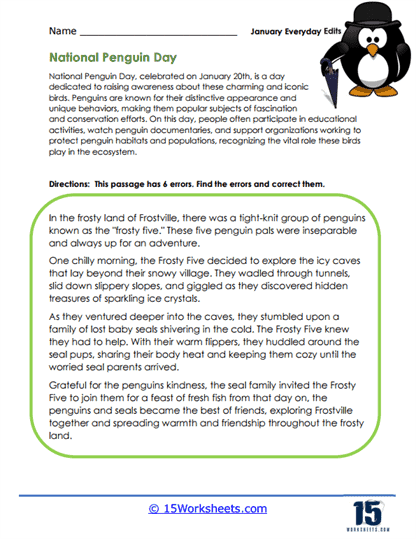January Everyday Edits Worksheets
All About These 15 Worksheets
January Everyday Edits worksheets are used in the classroom, particularly in elementary and middle school grades, to help students improve their editing and proofreading skills. These worksheets typically contain short passages or sentences with deliberate mistakes in grammar, punctuation, spelling, and capitalization. The goal is for students to identify and correct these mistakes.
The “January” in the title refers to the month, implying that these worksheets are themed or designed for use in the month of January. As a result, the content might be related to events, holidays, or topics relevant to January, such as New Year’s celebrations, Martin Luther King Jr. Day, winter activities, etc.
These everyday edits can be a fun and engaging way for students to practice and hone their language skills. Often, educators will provide similar worksheets for each month of the school year, allowing students to have consistent practice while also engaging with seasonally relevant topics.
What things are celebrated in the month of January?
January is a month filled with various celebrations, observances, and noteworthy occasions that span cultures, nations, and traditions. It serves as a bridge between the old year and the new, often seen as a time of reflection and fresh starts.
One of the most universally recognized events in January is New Year’s Day, celebrated on the 1st. It marks the beginning of the new calendar year in many cultures around the world. People often usher in the New Year with fireworks, feasts, resolutions, and parties that extend from the previous evening, New Year’s Eve. This celebration embodies the hope and excitement of new beginnings and the farewell to the year that has passed.
In the United States, Martin Luther King Jr. Day is observed on the third Monday of January. This day honors the legacy and achievements of the civil rights leader, Dr. Martin Luther King Jr. His efforts towards achieving equality through nonviolent resistance have left an indelible mark on the nation’s history. Schools, institutions, and communities often hold events, parades, and service projects to commemorate his life and teachings.
Many countries in the Northern Hemisphere also recognize January as a winter month, with events and celebrations tied to the season. For instance, some cultures and religions observe Epiphany on January 6th, which commemorates the visit of the Magi to the infant Jesus in Christian tradition. In some places, this is marked by festive parades and the consumption of special foods.
January is also a time when several awareness campaigns take place. For instance, National Blood Donor Month is observed in the U.S., emphasizing the importance and need for blood donations, especially post-holiday season when donations typically decrease. There’s also Thyroid Awareness Month, drawing attention to thyroid diseases and the importance of early diagnosis and treatment.




